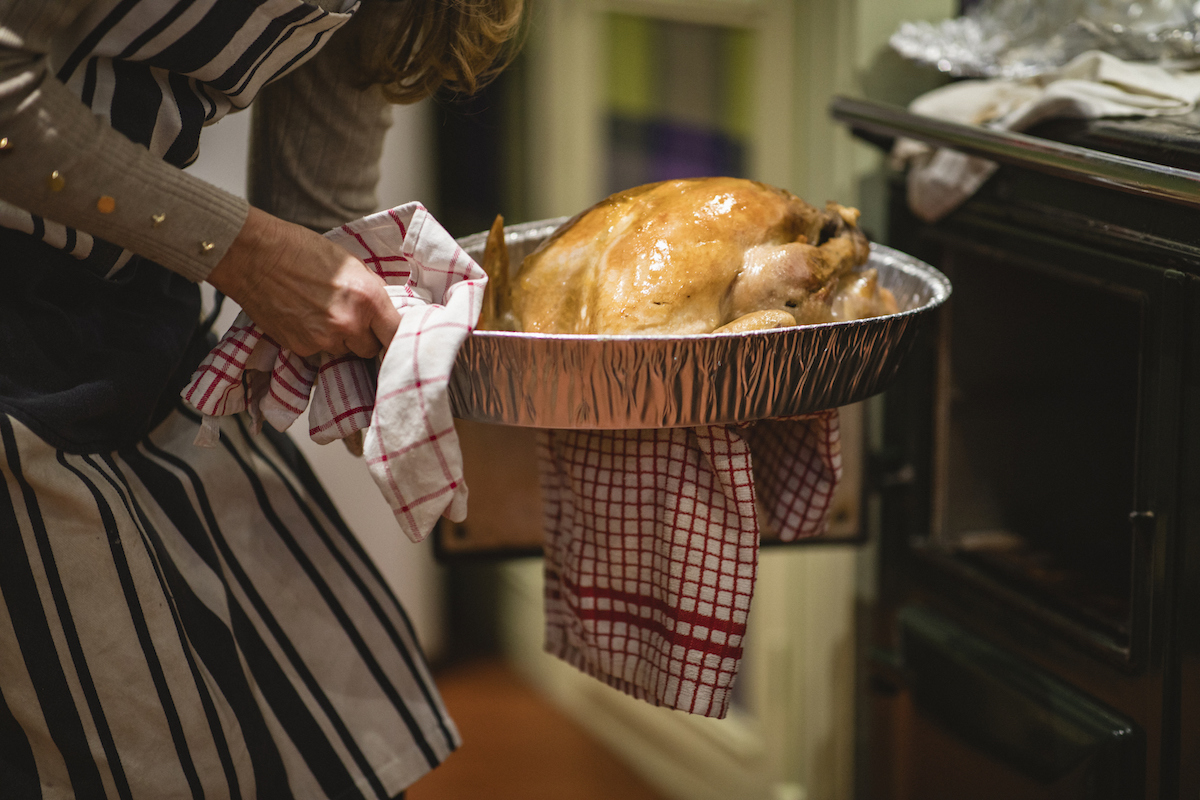<< Back
Downscaling the Holidays: How to Plan Your First ‘Bubble’ Thanksgiving

November 12, 2020
The supermarket industry fears a shortage of turkeys this Thanksgiving as the ongoing COVID-19 pandemic keeps more people than ever at home, cooking for themselves instead of traveling for a larger, traditional family gathering.
That is exactly what infectious disease experts would like to see, but whether it’s the plan for your family, keeping safety top of mind can help prevent a surge in infection a week or so after the holiday.
Keith Grant, APRN, director of infection prevention with Hartford HealthCare, said upticks in the illness have become predictable after holidays or holiday weekends in the last six months. Looking ahead, he asked people to reexamine their traditional feast and revamp it for safety’s sake.
“Conventional Thanksgiving is a high-risk activity,” he said.
Ideally, he said, it would be just those living in your home who gather around the roast turkey that day, but being flexible with arrangements — eat outside, wear masks whenever not eating, use technology to “connect” or segregate people at in-person fetes based on their risk — would help prevent disease spread, he said.
“You should identify risk factors for each guest, whether they have comorbidities, etc. It’s risk stratification,” he said of planning a gathering.
For people traveling a distance to celebrate the holiday, including students coming home from college, Grant said they should plan to be tested for COVID-19 seven to 14 days before they plan to travel and stay home if they test positive.
While he stressed the value of wearing masks and creating other physical barriers to the infectious particles that spread the virus, physical distancing, hand hygiene and avoiding potluck meals, Grant concluded that the safest option is a smaller dinner with your designated “bubble” of the people living with you.
Dr. Ajay Kumar, chief medical officer with Hartford HealthCare, added that holidays tend to leave people feeling relaxed, which can be dangerous when they fail to follow safety practices.
“We worry about multiple indoor get-togethers. We’re not worried as much about the schools, but we do worry about people’s behavior,” Dr. Kumar said, adding that the trend he’s been watching with COVID-19 infections lately starts with relaxed interactions of younger people, who then pass infection along to the elderly who are then requiring hospitalization.